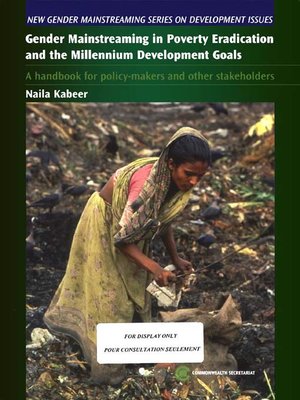Gender Mainstreaming in Poverty Eradication and the Millennium Development Goals
ebook ∣ A Handbook for Policy-Makers and Other Stakeholders
By Naila Kabeer

Sign up to save your library
With an OverDrive account, you can save your favorite libraries for at-a-glance information about availability. Find out more about OverDrive accounts.
Find this title in Libby, the library reading app by OverDrive.



Search for a digital library with this title
Title found at these libraries:
| Library Name | Distance |
|---|---|
| Loading... |
In this book, Naila Kabeer brings together a diverse set of arguments, findings, and lessons from the development literature that help to explain why gender equality merits specific attention from policy-makers, practitioners, researchers, and other stakeholders committed to the pursuit of pro-poor and human-centred development.
All over the world, women from poor households play a more critical role in income-earning and expenditure-saving activities that do women from better-off households, and these activities are concentrated in the informal economy. In the past decades, the relationship between household poverty and women’s paid activity has become stronger, partly in response to economic crises and the “push” into the labour market and partly in response to new opportunities generated by globalization. Improving women’s access to economic opportunities and enhancing returns on their efforts, therefore, will be central to the goal of poverty eradication and the achievement of the Millennium Development Goals.
This book explores the issue of gender inequality through the lens of the Millennium Development Goals, particularly the first one of halving world poverty by 2015."







